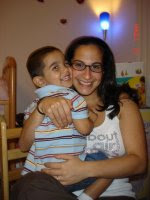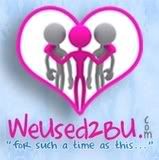
Written by: Yvette Schneider
A Cross Posting from Exodus Youth
I had a friend in high-school who was my first best-friend. We spent all of our free time together. For the first time in my life, I felt loved and accepted for who I was. This was an exciting time for me. I grew close to this friend and to her family. There were times soon after my parents’ divorce that I didn’t go home for days, spending more and more time at my friend’s house. We were not in a lesbian relationship, but when my mom asked me if my friend and I were homosexually involved, I had to admit to myself that I wished we were. If we were a “couple,” then she would never leave me and I would always feel the thrill of having someone truly care about me and value me as a person.
My friend and I may not have had a lesbian relationship, but we had an emotionally dependent relationship that was unhealthy and stifling. It left no room for any other friendships. We depended on each other to the point that we became possessive and jealous if anyone else tried to join our exclusive group of two. The nature of our friendship became a pattern of idolatry – nothing in our lives mattered more than each other. When eventually something did matter more than our friendship, namely my college education, our friendship disintegrated into a pile of hurt feelings that led to petty acts of revenge.
Friendships are beautiful when they are meant for the uplifting and edification of each other. When we want what is best for the other person and are not just trying to get our own emotional needs met, then we are truly a friend. But often, we aren’t looking out for the best interests of our friend, we are looking to get from them whatever is lacking in our own lives. We want the other person to be there for us no matter what. But what if someone else comes along who wants to form a friendship with our friend and spend time with her. How do we respond? Are we generous and giving? Are we willing to spend less time with our friend so she can pursue her dreams and have more well-rounded and healthy relationships instead of focusing on just one, which can be stifling?
I have no doubt that you love your friend. I love my sister and consider her to be one of my best friends, but that doesn’t mean that we’re lesbians. Gay activists have tried to say that Ruth and Naomi in the Bible were lesbians because Ruth was dedicated to her mother-in-law and wanted to accompany her back to Judah. But there is nothing in the Bible to suggest that Ruth’s love for Naomi was sexual, and there is nothing to suggest that a deep friendship that includes self-giving and sacrifice for the sake of your friend’s well-being is the result of homosexual feelings.
God intended for us to have friendships to support one another and see each other become the people that God intended us to be. This goes wrong when we sexualize our feelings for our friends, when we expect them to meet our every need or when we attempt to meet their every need. As a community of believers and the body of Christ, we are to freely give our friendship to a variety of people and accept the friendship of others in the same way. When a friendship becomes exclusive and limiting, it can no longer be called “friendship,” no matter how you “feel” about your friend. In the end, this type of “friendship” is nothing more than bondage.
Resources
You might want to check out one of these resources about emotional dependency - they explain the problem, help you see if this is a problem in your life, and provide practical advice on getting out.
Emotional Dependency
Emotional Dependency for Guys










































